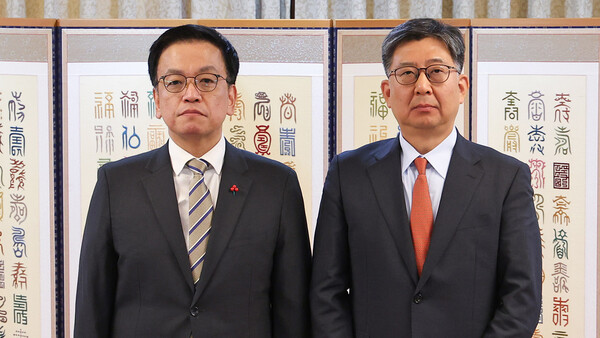New diplomatic missions established in Slovenia and Georgia; Special appointees’ appointments pending constitutional court ruling

On January 31, Acting President and Deputy Prime Minister Choi Sang-Mok, who also serves as the Minister of Strategy and Finance, carried out long-delayed appointments for new ambassadors following the impeachment crisis and the declaration of martial law on December 3.
On that day, Choi awarded credentials to 11 new heads of diplomatic missions, including Lee Ho-Yul, the first ambassador to Cuba and the current career diplomat serving as minister at the South Korean Embassy in Mexico.
In addition to Cuba, new diplomatic missions were created. Bae Il-young, former director-general for information management at the foreign ministry, will take up the top envoy post to Slovenia, where South Korea has newly opened its embassy.
Kim Hyon-du, minister-counselor at the South Korean Embassy in the Philippines, will head the new embassy in Georgia, following the upgrade of the Tbilisi office.
Kim Jong-han, director-general of the department of Indo-Pacific studies at the foreign ministry-affiliated Institute of Foreign Affairs and National Security, will lead the embassy in Latvia.
Others include Kim Dong-bae, ambassador to Bulgaria; Kim Hyung-tae to Serbia; Kwak Tae-yeol to El Salvador; Park Ki-chang to Ukraine; Kim Choon-goo to Italy; Kang Hyung-shik to Kenya; and Han Byoung-jin to Panama.
Kim Young-jae, former minister for economic affairs at the South Korean Embassy in the United States, will serve as consul general to Toronto in Canada.
However, special appointees, such as Kim Dae-Gi, former Presidential Chief of Staff who was slated to be appointed Ambassador to China, Bang Moon-Kyu, nominated for Ambassador to Indonesia, were not included in the current appointments. Both of these candidates were special appointees selected by President Yoon Suk-Yeol, and their appointment status depends on the outcome of the Constitutional Court's impeachment judgment.
A Foreign Ministry official explained that the delay in the Ambassador to China appointment was due to the significant political and diplomatic implications of such key positions, especially for the four major powers, and emphasized that further careful deliberations would take place before the final decision.

